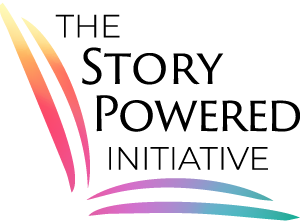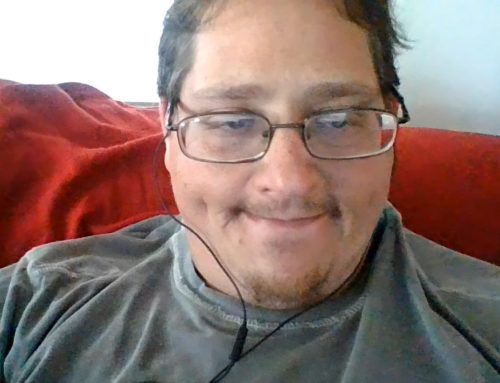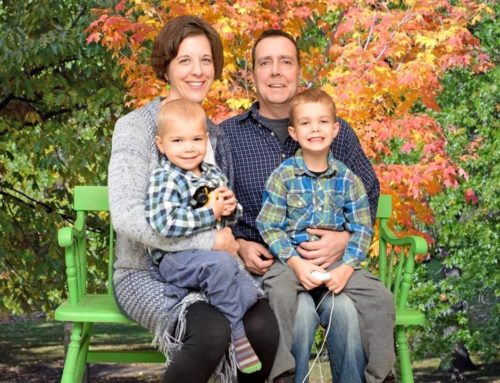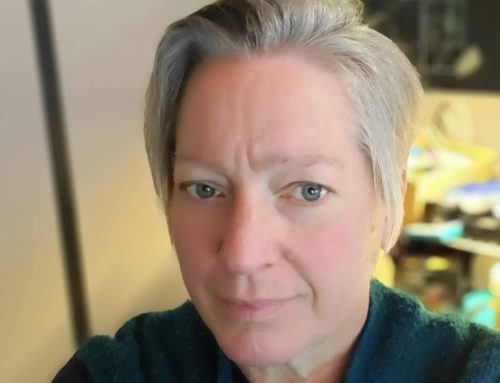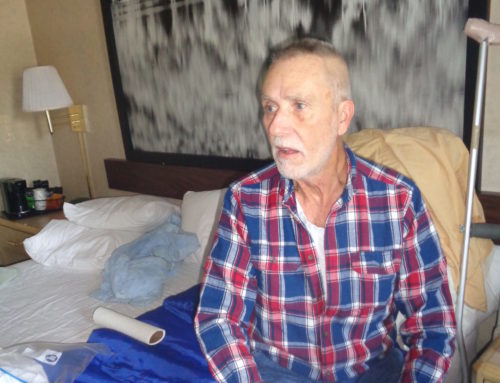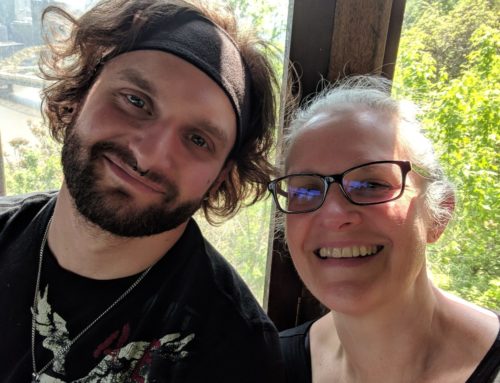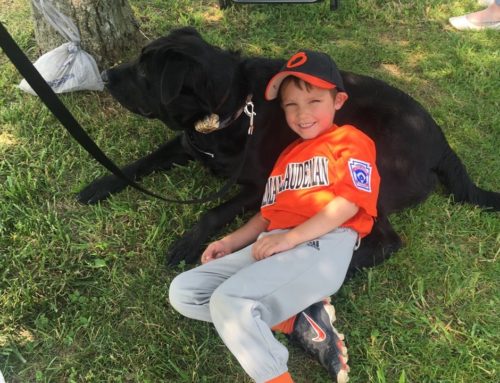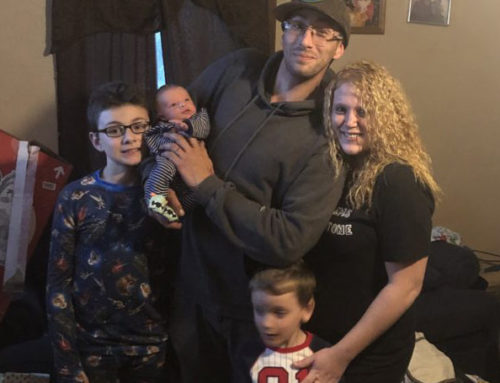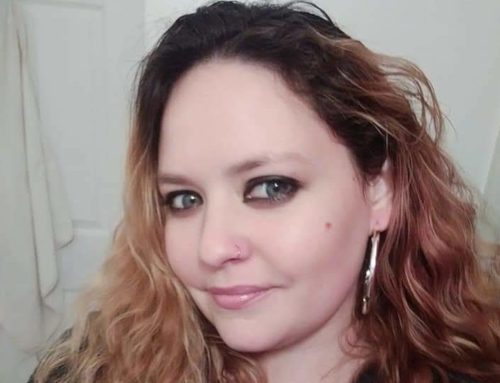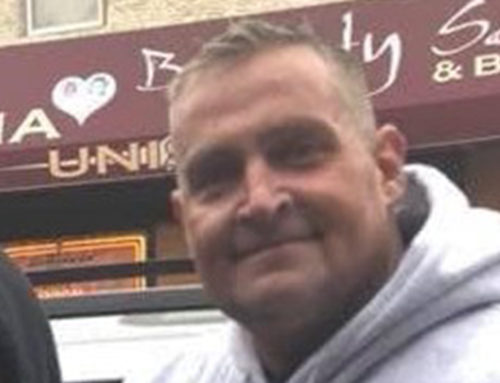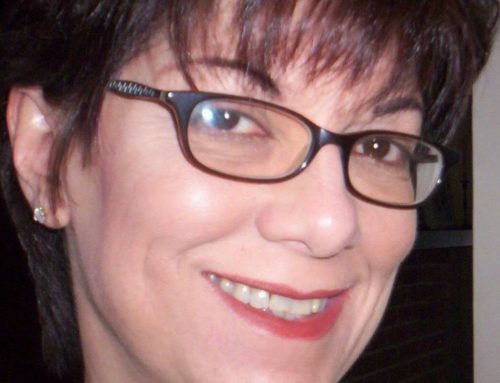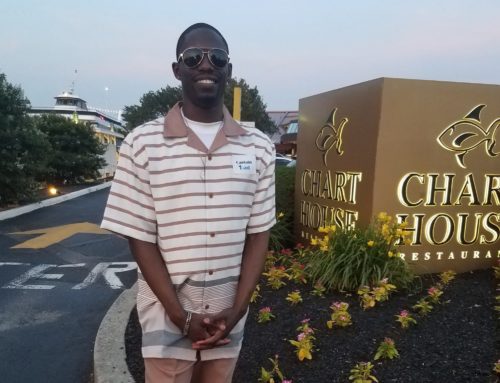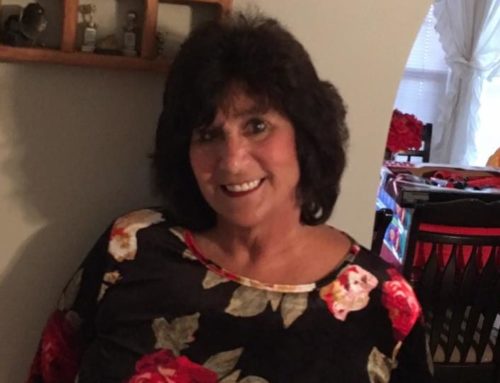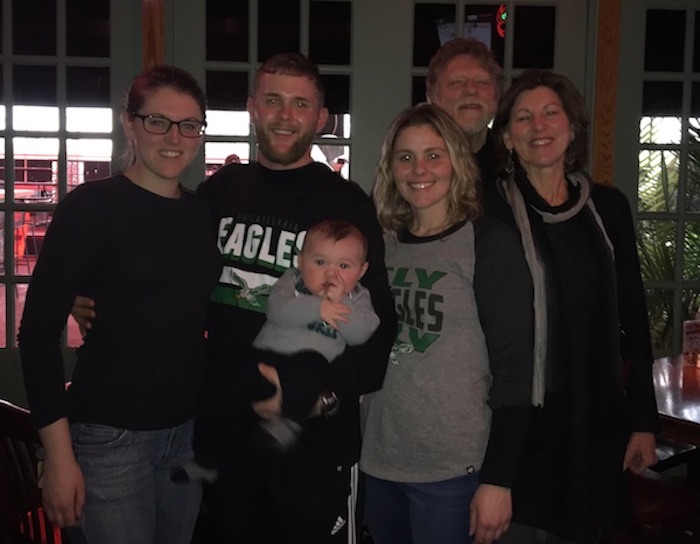
"It’s incredibly helpful to have a connection with someone else who understands what you’re going through."
I grew up in Texas, went to the University of New Mexico, and currently live in Chestnut Hill area of Philadelphia. I have a husband, a 25 year old daughter, and a 26 year old son. I own my own promotional products business and teach swimming and water aerobics. My son started having tantrums and impulsive behaviors around six years old. We had him evaluated and were told that he lacked the stopping mechanism most other children have to understand that certain behaviors resulted in consequences. We were unaware at the time, but he began using drugs when he was thirteen. I noticed a significant change in him and took him to numerous therapists and his pediatrician. I did everything in my power to figure out what was wrong and how he could be helped. I had no personal experience with addiction to know what was wrong and none of the specialists he saw ever diagnosed him with substance use disorder. The solution everyone was providing him at the time were more drugs. He was tested for ADD and bipolar disorder, but didn’t have either. He was nonetheless prescribed medications because they had no idea what else to do.
My son started using marijuana when he was 13. He very quickly went on to pills, then moved onto PCP, and then progressed to heroin at 19. When we found out about his drug use, we did everything we could to stop it. The only thing I would have done differently would be preventing him from getting his driver’s license. He was in the juvenile justice system at a very early age. His first treatment was at 19 and it was to dodge jail time for felonies. Since then, he’s been in and out of 16 different rehab programs. The first 12, he was the poster-child, the compliant kid. He always completed treatment with full cooperation but would soon begin using after getting out. At this point, I don’t think he knows how to live sober, and he wrote a letter saying as much. Like many others in recovery, he wants to do it his way, and it’s not working.
He does not like being homeless, and I don’t want to enable him, but I keep letting him back into the house. We’ve had a lot of snowstorms lately, and I can’t think of any mother who can put their kid out in that. We’ve also saved him financially many times. Again, we don’t want to enable him, but it’s a very hard line to walk. We discovered parent support groups eight years ago, and they’ve been incredibly helpful. My closest friends are moms with children battling substance use disorder. We are buddies and are always texting, calling, and emailing to support each other. My husband and I have attended support groups and informational meetings, and as a result we’ve become very educated on the topic of opiates. I started a program five years ago at a women’s treatment center called Interim House. Every other Friday night, moms whose children suffer from substance abuse disorder bring dinner, sit in a circle, and just show love and respect to the women in the treatment program. We do everything a mom would do, and it’s great for them and us. It gives us a place to share our love and understand addiction from the addict’s point of view and they learn what it is like for parents.
My extended family has known about my son’s drug use from the very beginning. My in-laws recently passed, but even in their mid-90’s, they knew about his addiction and were never judgmental. My dad who’s in his 90s also has always been supportive of my son. My son’s sister has never done drugs. She went to college in DC and lived in Spain for a while, so she and her brother haven’t crossed paths much in the past 10 years. For the past 2 years though they have both lived in Philadelphia, so she has witnessed the effects of his disease and its effects on my husband. It’s hard for her to see and deal with her brother in these situations, but she is very empathetic and understands addiction; she has seen it first-hand working in Kensington. The whole situation has strained our family, especially the relationship I have with my husband. My son is currently the father of a nine month old child. The birth mother has been sober for over two years and has moved home. She’s still a big part of our lives and is very supportive of my son’s recovery.
My son recently completed a 28 day treatment program and is currently living in a recovery house. I am very grateful that Blue cross Insurance is continuing to cover him despite the fact that he’s been in and out of several programs already this year without completing them. Treatment should never be refused to those who seek it. He was originally on Medicaid but the coverage was horrific and frankly that’s part of the problem. There is a lack of funding, and as a result, there’s a lack of dignity for those who depend on Medicaid. They sit in these places waiting for an evaluation for an entire day, sometimes two days. They’re not given anything while they’re waiting and are sitting waiting and if there isn’t a bed available that day they are back in Kensington because they start withdrawing. I would’ve gladly taken my son home or to the local McDonalds to eat, but you lose your spot if you leave. He was put in a couple of places that were just horrible.
I hope there will be more dignity and love in treatment programs for people on Medicaid. There is a real discrepancy in how one is treated with private insurance vs Medicaid. I understand that those who want to recover need to be committed, but when they relapse, they shouldn’t be stigmatized and have obstacles thrown in front of them. People who relapse already feel awful and don’t need any more judgement; no one wants to be addicted to heroin. They should be allowed to keep trying and treatment should be easily accessible to them.
It’s personally hard for me to see my son deal with all of this. He’s overdosed several times, and he may not be so lucky as to be revived if it happens again. It’s hard imagining him on the streets, and it’s something I try not to think about because it’s so heartbreaking. It helps to read a lot about addiction though, it gives you a better grasp of what’s going on and why it’s happening. What’s been most helpful through it all is the support and love I’ve received from other parents going through this. It’s incredibly helpful to have a connection with someone else who understands what you’re going through.
This is why I am sharing my story, so that other moms and dads going through this know that there are groups out there that can help.
This epidemic has affected hundreds of thousands and we’ve created numerous support groups to reach out to each other. The ability to just write a long email about your feelings at two in the morning to someone you’ve connected with can help more than you would expect. Don’t be ashamed or try to hide it, it’s incredibly healing to talk about what you’re going through, even if it’s someone you’ve never met.
